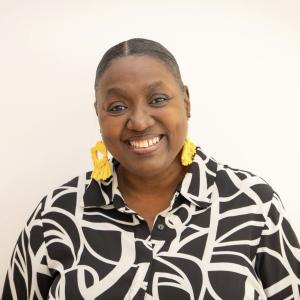Mr. Trebucq, in his presentation, highlighted the progress that has been achieved as of the establishment of the Resident Coordinator System (RCS) which became effective 1 January 2019. Among the achievements: a new Management and Accountability Framework under implementation; a new United Nations Sustainable Development Framework (the successor to the United Nations Development Assistance Framework) was developed; the 2019 ECOSOC Operational Activities for Development Segment report and recommendations for Multi-Country Offices; the launching of the Funding Compact and the SDG Joint Fund and other financing opportunities to address climate change and SIDS development challenges are underway.
As the Resident Coordinator referred, “The UN reform is about how the UN brings its value proposition and tailors its capacities to respond to Small Island Development States (SIDS) challenges for our particular region in support of Government and in collaboration with partners.”
Within the Eastern Caribbean, the reform is bringing about a more accountable, articulated and coordinated UN development system by aligning to countries’ national priorities such as resilience and climate change, blue economy, non-communicable diseases, youth and employment and data for SDGs, among many others.
The UN is working as one in the Eastern Caribbean region by supporting countries identify way to accelerate and finance the 2030 Agenda and the SDGs. Saint Lucia has recently benefitted from a comprehensive mainstreaming, acceleration and policy support (MAPS) leading to a SDG Roadmap. The UN Info as an accountability instrument will present disaggregated data by country on the UN’s contribution to the SDGs.
On strengthening interagency collaboration, several joint programmes are being rolled out .As part of the new funding instruments under the UN reform, Barbados, Saint Lucia and the OECS have been awarded with US $ 3 million by the SDG Joint Fund for a joint programme on Universal adaptive social protection to enhance resilience and accelerate SDGs in the Eastern Caribbean. Within the framework of the Spotlight Initiative, a UN-EU partnership, a country initiative with the Government of Grenada on the Fight Violence against Women and Girls in the Eastern Caribbean for the tune of US$2.2 million, as well as a Regional Programme covering the Caribbean region. In addition, five eastern Caribbean countries: Antigua and Barbuda, Dominica, Grenada, Saint Lucia and Barbados, will be implementing a joint programme on Building effective resilience, gender equality and women empowerment to strengthen agriculture, for a total of US$ 6.2 million, of which US$1.9 million is funded by the Human Security Trust Fund, a UN -Japan partnership.
As referenced by development partners, the UN Reform is “refreshing and a necessary step” that requires joint efforts to have greater impact in countries and the region. As UN Member States, partners welcomed the new coordination and joint initiatives driven by the UN Sub Regional Team, while also reiterating their commitments to the sub-regional priority areas on climate change and the blue economy, among others.
UN Agencies Representatives also shared on their own Agencies organizational adjustments to ensure alignment to the UN development system, as the system is “changing.”
For more information on the UN Reform progress, please see visit: https://reform.un.org/
******
As of 1 January 2019, within the framework of the United Nations development system (UNDS) reform, the Resident Coordinator is the highest-ranking official of the UNDS and Representative of the United Nations Secretary-General at country level. The Resident Coordinator leads the United Nations Sub-Regional Team in support of the operational activities for development in countries along with Agencies, Fund and Programmes Representatives. The Resident Coordinator’s Office provides support with ensuring coherence, articulation and coordination of UN Agencies, Funds and Programmes to deliver as one towards the achievement of the Sustainable Development Goals in countries.
The 2030 Agenda for Sustainable Development, adopted by all United Nations Member States in 2015, provides a shared blueprint for peace and prosperity for people and the planet, now and into the future. At its heart are the 17 Sustainable Development Goals that call of a urgent global action on: No poverty; zero hunger; good health and well-being; quality education; gender equality; clean water and sanitation; affordable and clean energy; decent work and economic growth; industry, innovation and infrastructure; reduced inequalities; sustainable cities and communities; responsible consumption and production; climate action; life below water; life on land; peace, justice and strong institutions; partnerships for the goals.


















